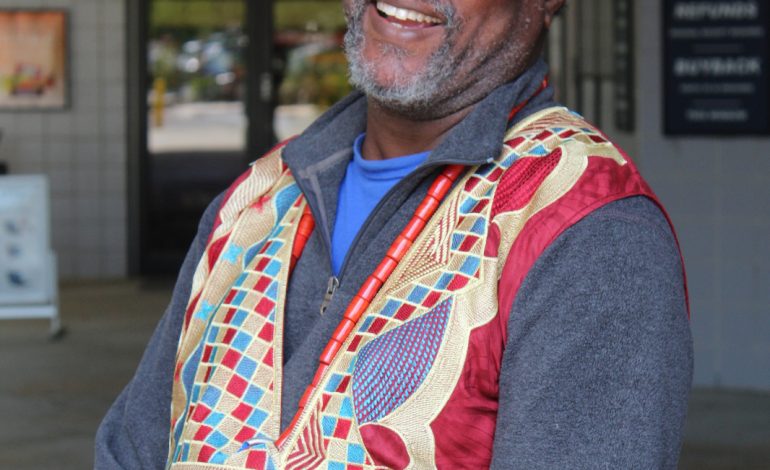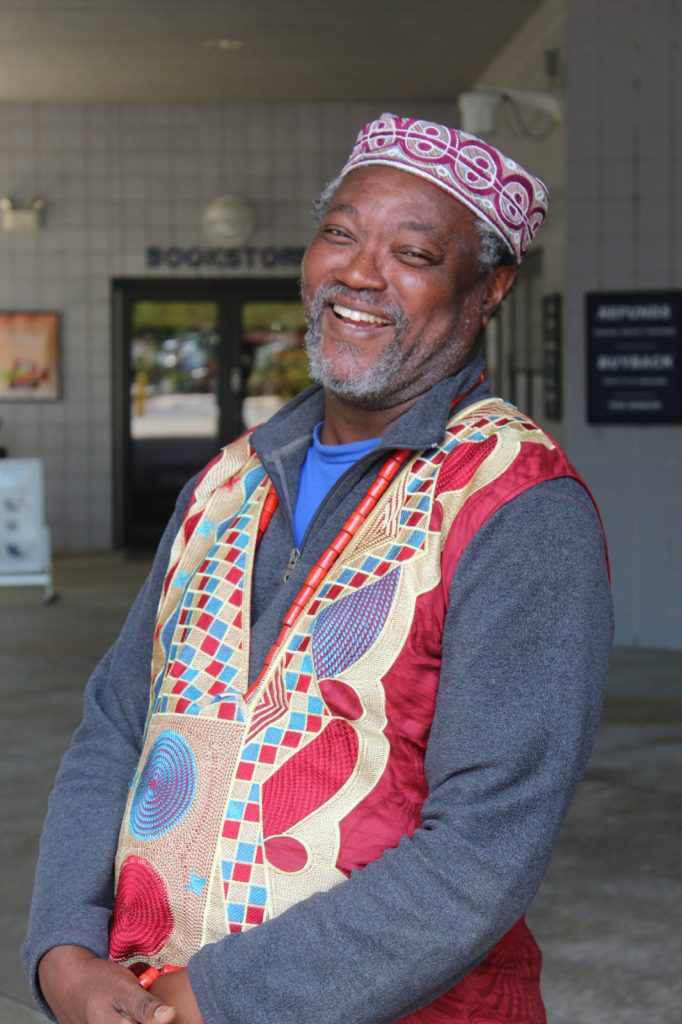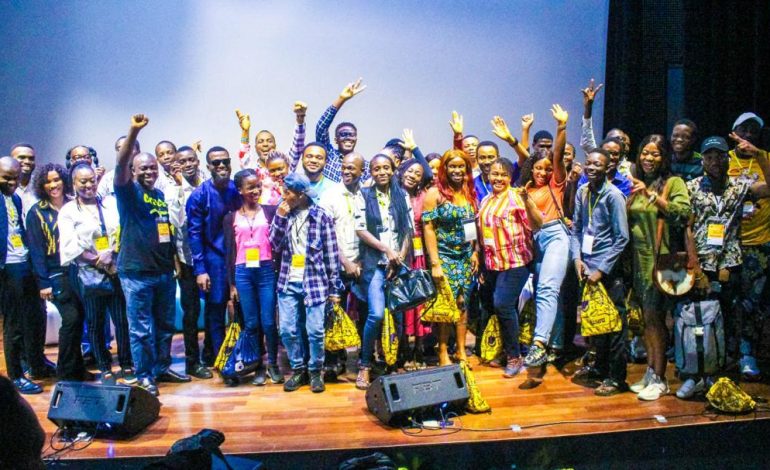U.S.-based Nigerian don offers novel ways of deepening book reading in depressed economies

By Godwin Okondo
HIS diverse background includes roles as a creative writer, performer, university educator, photojournalist, radio host, filmmaker, and environmental activist. With these multifaceted portfolios, University of Florida don Dr. Kole Odutola comes handy when dealing with some of the peculiar problems plaguing the Nigerian society. It was no surprise therefore when he reeled out some of the things that need to be done to reposition reading as a pastime in the country. He spoke at the fourth anniversary celebration of the Network of Book Clubs and Reading promoters in Nigeria (NBRP) held virtually on Wednesday, February 7, 2024.
The session themed ‘Getting Back the Reading Groove’, also had other resource persons like early years reading expert, Prof. Nkechi Christopher, library expert, Dr. Nkem Osuigwe and writing promoter, Dr. Emman Usman Shehu. President of NBRP Richard Mammah, Chairman, Nigeria Book Fair Trust, Mr. Dare Oluwatuyi and President, Nigeria Publishers Association (NPA), Chief Cyril Anioke, represented by NPA’s Executive Secretary, Emmanuel Abimbola, were present as well as veteran journalist and culture communicator, Mr. Jahman Anikulapo.
While speaking on how to drive effective book clubs, Odutola said it was perhaps time to take the book passion beyond the usual haunts to other sectors or segments of society that haven’t been factored into the book campaign equation yet. These he said should include adopting unorthodox methods like reading in buses, co-opting unusual people and even politicians into the book equation to extend the usual places and person. He also canvased segmentising society, so different strata of society are covered.

Prof. Kole Odutola
“Part of what I do is to hunt for texts,” he began. “My father used to a hunter of animals and herbs, but I hunt texts instead on the internet. And I was looking at: how do you promote book culture in a depressed economy? One of the things that came up was understanding the terrain. Everyone I tried to invite to this webinar said if there’s power supply and the internet is stable, they will be able to make it. I’ve looked for everybody, a few are here, not all.
“What I gathered about promoting books in a depressed economy, in a developing economy and society like this (Nigeria) is that we have to look for ways to achieve the same thing in better, smarter ways. To read e-books from the internet means you must have power supply and internet connection. To encourage this in places like Abuja, Lagos, Port Harcourt, Aba, we should put e-books in flash drives. If books are already in flash drives, you do not need internet to read. All you need is a power bank for your phone to read books on the go. Ideas like that go a long way.
“Necessity is the mother of invention; I’m yet to find the father of necessity! I was in Bogota, Colombia. Could you believe that there was a guy who travelled from one point to another in these long buses just reading books to people! And before he gets a bus stop, he’d tell an abridged version of what the book is about. And I noticed that people were giving him money. Of course, it was in Spanish, so I didn’t know what they were saying. But I saw what he was doing and noticed the passion while he was reading. People were getting up and giving him money for that effort, and he had a series of books. In South African, it also happens.
“I’ve always looked at it: how do we do these start-ups in a country like Nigeria? And I said, reading to earn; learn, read to earn, so that it’s not just a matter of reading; your reading can also bring you something. You can be a performance reader. This is someone else’s book; you can offer yourself to read and dramatise it. Some of you will have seen Tunji Sotimirin reading from somebody’s text. Writers have been jealous and ashamed of themselves when Tunji read their books, because of the energy and the liveliness he puts into the task.
“And there’s the possibility of disaggregating society. Nigeria is not very good at the different classes – upper class, middle and lower classes, but there are the professional classes that can be approached with texts that speak to the various professions and professionals. The banks can be approached with a book that has a banker as protagonist in the story. And you can go to the bank during lunch break, get somebody to read to them… Once you start to read, you don’t finish the story. Make them to want more, and they can now, within themselves, begin to read that same text on how bankers are represented. Of course, you know that medical practitioners – doctors – have taken root in fiction realm, with people like Dr. Wale Okediran, Dr. Tony Marinho, Dr. Olugbule; you need to read the kind of things they’ve written. Now because they are doctors, what would it be like to read their works to fellow doctors.
“In Florida here, we have Art and Medicine; it’s not just reading, playing music, poetry; they have actually evaluated what these art forms do to patients and what they do to doctors, to the wellbeing of people. Doctors work long hours, so they need relaxation. I’m saying we have to refocus and disaggregate segments of society; not just saying we have to start a book club. A lot of attention is focused on school pupils; they are not difficult to get; if they don’t read, they will fail. But we need them to read books that will take them from the humdrum of society to higher levels.
“One of the catch phrases I got from Richard is that ‘readers are leaders’. But what kind of leaders are they? It’s not difficult to motivate school pupils. But the people it’s difficult to motivate that I want us to motivate are MC Oluomo and his gang. How can we reach out to MC Oluomo? Somebody wrote a book for him, My Service to Humanity, and I’m sure it would be real fun to get some fantastic actors to read that book to his friends or transcribe it in language that they can understand. So it’s possible; my heart is heavy. It’s easier said than done. The terrain is difficult. In my time, it was possible, but now with all the things happening, it may be difficult. But we need to bring them in. In this part of the world, it’s the last mile. We need to get to the last mile. We can get to the last mile.
“Someone I know in this category is the former governor of Lagos State, Babatunde Fashola. He’s been known to distribute books to politicians. My greatest imaginative project is to have leaders’ retreat for people in parliament in Abuja. What I’d like to do is bring politicians to a place, get a book that can transform their lives and read it to them and get them to read it. The only condition is that they will not be with their phones for X number of hours. We need to focus on the weakest link in the chain. How do we get them to read? I know people will say this is coming from my wild imagination! We can get Hilda Bacci to cook for the politicians and make them read, and bring to them what’s in books. How do we read to market women as well? These are dreams that have tormented me for hours. How can I bring MC Oluomo and his gang to see what is in books?”
While Dr. Odutola’s proposition to get politicians to read may seem desirable, but also romantic, which Odutola also conceded to, Dr. Shehu, without dismissing its possible merit, said dealing with Nigerian politicians, when it concerns culture and education, is a nightmare and wondered at the feasibility of such proposition from his personal dealings with them over the years, as a culture promoter based in Abuja.
“I don’t want to sound pessimistic, but that’s a difficult sector to deal with, unfortunately,” Shehu said. “They are much more concerned about the next election, and after the next election, they’re thinking about how to consolidate on their position. They’re a very difficult set of people to deal with. We had a literary festival and all the politicians who made promises, we had to start chasing them about. But if it’s a book launch where somebody writes about their administration, they will come and make promises. So it’s difficult to deal with them; it’s a matter of orientation. Dealing with politicians is a nightmare. I even tried to get books to some public officers while I was working in the public sector, they never opened the books.
“Unfortunately, the way our education has evolved is problematic since we still retain the one the colonisers left us – to read to pass examination, read to get a job. etc. When we got independence, we didn’t bother to restructure our education from that model. There’s no conscious efforts to make people have the mindset that reading is a lifelong endeavour.”
Odutola also offered great insight on how to successfully access funding from donors for book and other artistic and cultural projects, saying the key is to endear oneself to the funders and embed oneself into their activities.
According to him, “Don’t confront your funders with proposals when you need funds from them. You have to raise them as friends first; you have to relate with the organisations, so you know what their agenda is before you write a proposal. If you write a blank proposal that doesn’t fit into their programme for the quarter or year, it’s not going to be funded. Funders are waiting for people to raise ideas; they want people to work with them. You need a documentation of what has been done, an impact analysis of what you have done and then ask for funding to build on what has already been done. And many times, we forget to say what we’re bringing to the table. We also must add value to funders’ projects.
“First and foremost, get yourselves into the activities of funders; let them get to know you, work with them. Sometimes, when they know that you contribute to their projects, they are the ones to ask you or tell you, ‘we’re doing such and such a thing, and there’s funding for it.’ But if you just want write, you may be lucky, you may not. When we were there, we attended every activities of the likely funders in town – Heinrich Boll Siftung, Goethe, Alliance Francaise, Ford Foundation, etc. So it takes time. You need to understand the organisations you’re asking funding from; let them know you. Once they have an idea and they’re confident about you, they fund you. Put together a portfolio of what you have done; these are all part of what they send back home to tell their bosses that this is one of us, and then they get you funded.”



